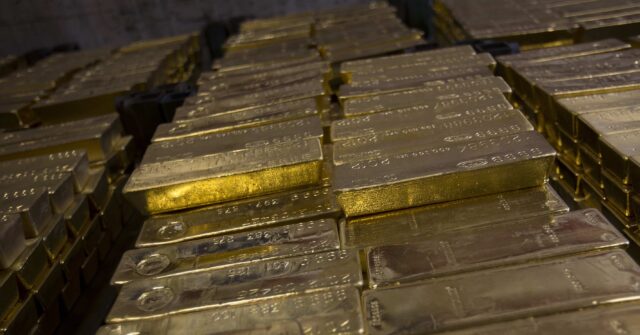The recent disclosures by the Israel Defense Forces (IDF) have brought to light a significant financial operation tied to the Lebanese terrorist organization Hezbollah. According to IDF spokesman Rear Admiral Daniel Hagari, Hezbollah has concealed approximately $500 million in cash and gold within a bunker located underneath the Al-Sahel Hospital in Beirut. This information underscores the depth of financial support Hezbollah receives from Iran, including cash and precious metals sent in suitcases to the Iranian embassy in Beirut, and subsequently transferred to Hezbollah’s control. The IDF’s revelations expose a network of financial resources that not only includes substantial sums of money but also extends to assets located in Lebanon, Syria, Yemen, and Turkey. The military insights illustrate how Hezbollah’s financing is intricately linked to Iranian geopolitical maneuvers in the region.
Moreover, the IDF highlights the economic system that predicates Hezbollah’s operations, revealing that Iran has been supplying funds derived from selling oil in Syria. This assertion is particularly significant given recent assessments indicating a resurgence of Iran’s oil industry under the Biden administration, which seemingly rebounded from previous sanctions imposed during the Trump era. According to reports, Iran’s oil sales have generated nearly $200 billion in revenue in the last four years, enhancing its ability to extend financial support to proxy groups like Hezbollah. The specificity of the IDF’s claims regarding the bunker’s location and its contents—including a command center and a vault—paints a picture of a well-structured financial and operational base for Hezbollah situated in an ostensibly civilian area, raising concerns over the group’s tactics of using hospitals and other civilian infrastructure for military purposes.
Following the IDF’s revelations, Israel escalated its military actions against Hezbollah by targeting financial institutions linked to the organization. The airstrikes aimed at crippling Hezbollah’s financial capabilities signaled a strategic step towards diminishing its ability to fund attacks against Israeli citizens. Rear Admiral Hagari noted that while the IAF monitored the Al-Sahel Hospital closely, they aimed to avoid direct hits on the hospital itself, demonstrating a tactical consideration for civilian safety despite the ongoing conflict. However, warnings were issued to evacuate other facilities where strikes were planned, indicating a methodical approach in targeting Hezbollah’s operational support systems without causing undue harm to non-combatants.
Hagari’s statements extend beyond immediate military strategy, pointing out the broader implications of Hezbollah’s financing on Lebanon’s already precarious economy. He argued that Iranian funding, especially in foreign currency, exacerbates Lebanon’s financial crisis by devaluing the Lebanese pound. This commentary highlights the multifaceted impact Hezbollah has not only on Israeli security but on the Lebanese economy, contributing to a spiraling crisis that affects everyday citizens. The IDF’s position emphasizes that the conflict is not against the Lebanese people but rather against the structures and operations of Hezbollah, indicating a desire to distinguish between combatants and civilians in this ongoing conflict.
The backdrop of these developments includes a prolonged period of instability in the region, characterized by frequent skirmishes and attacks between Hezbollah and Israeli forces. IDF officials have consistently underscored the necessity of neutralizing Hezbollah’s terror capabilities to secure northern Israeli populations. The operations executed in response to Hezbollah’s financing and strategic military positions aim to reinforce Israel’s national security while addressing the ongoing threats posed by the organization, which is viewed as a direct extension of Iranian interests in the region.
In summary, the IDF’s recent announcements reveal a complex and intricate financial relationship between Iran and Hezbollah, highlighting significant sums of money hidden in strategic locations, which facilitate the terrorist organization’s operations. The Israeli military’s responses, including targeted airstrikes and military strategy designed to prevent civilian casualties, illustrate their ongoing commitment to neutralizing Hezbollah’s capabilities. At the same time, the situation presents a stark reminder of the larger regional tensions and economic challenges facing Lebanon, where the intertwining of local and foreign interests continues to complicate prospects for peace and stability in the area.

